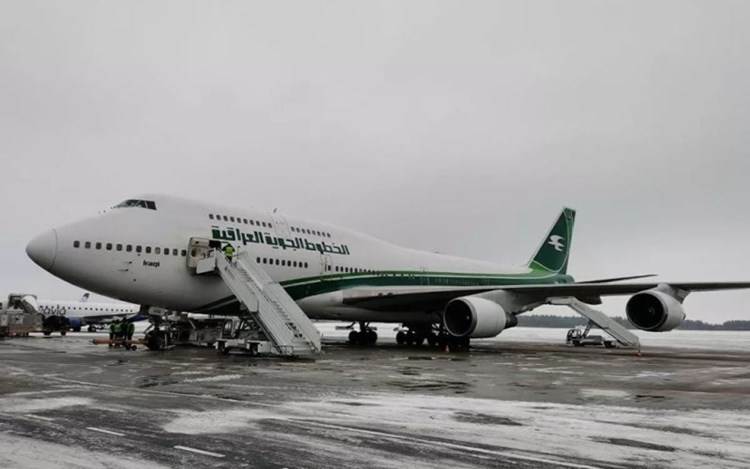Hundreds of Iraqis return home after failing to enter Europe
More Iraqis leave Belarus for Iraqi Kurdistan after they were unable to enter the European Union.
-

For weeks, thousands of migrants camped at Belarus' border.
The Belarusian authorities announced that a new flight carrying about 400 Iraqi migrants who were hoping to cross the border from Belarus to Poland left Minsk on Tuesday.
The first flight to return Syrian citizens to Damascus is also scheduled to leave on Wednesday.
For weeks, thousands of migrants camped at Belarus' border, sometimes in very difficult conditions, in the hope of crossing the Polish border to enter the European Union.
Minsk Airport reported that an Iraqi Airways flight left for Erbil in Iraqi Kurdistan with 417 passengers, including two children.
Iraqis on the border
More than 3,000 Iraqi migrants have been repatriated since the beginning of this journey in mid-November, with many of them suffering from injuries caused by freezing temperatures in the Belarus-Poland border area.
Many Iraqis who were stranded at the border reported spending their entire savings, selling valuable property, and even borrowing to escape Iraq's economic hardship and start a new life in the European Union.
See more: The Polish-Belarusian Border Crisis
Border crisis
Western countries accused Belarus of bringing migrants, mostly from Middle Eastern countries, to the borders of the European Union in response to the sanctions imposed by the bloc on the regime of President Alexander Lukashenko.
However, Belarus has denied the accusations and criticized the European Union for refusing to take in the migrants.
In turn, Lithuania announced, on Tuesday, extending the state of emergency on its border with Belarus until mid-January, while migrants continue their attempts to cross the border.
Meanwhile, Belarus announced that it would impose a ban on food imports from several Western countries after the United States and Europe expanded sanctions against Minsk.
Belarus ban
The Belarusian government published a decision in which it announced a ban on importing a wide range of foods from the European Union, the United States, Canada, Britain, Norway, and other countries as of January 1.
It said in a statement that "retaliatory measures have been taken, taking into account the continuous Western attempts to illegally pressure our country through sanctions."
Among the foods included in the ban are meat, dairy, cheese, vegetables, sweets, and salt. The government stated that it may ban more products in the future, indicating that the decision will be implemented for six months.

 3 Min Read
3 Min Read








